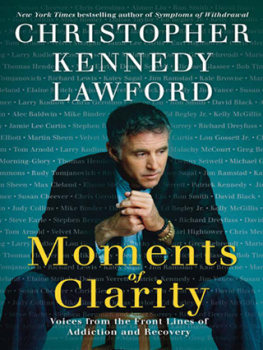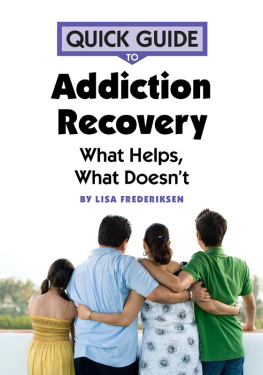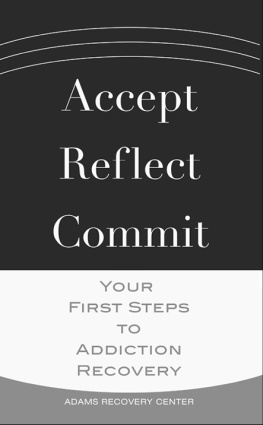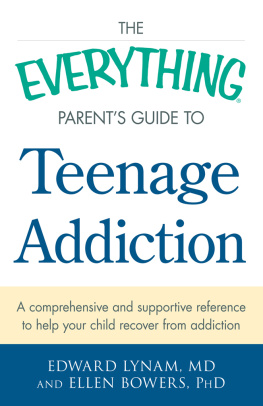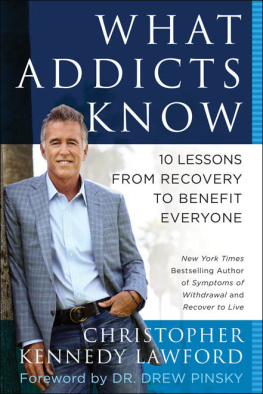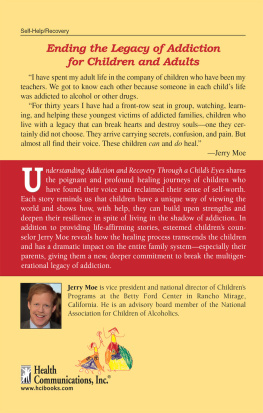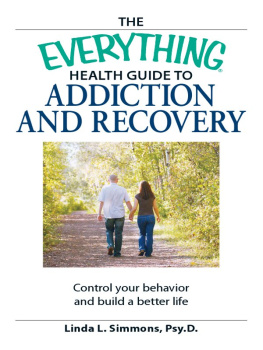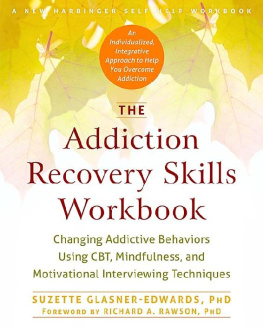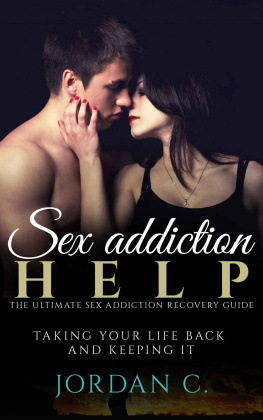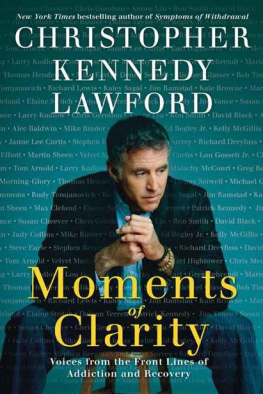His craving for alcohol was the equivalent on a low level of the spiritual thirst of our being for wholeness, the union with God.
The only right and legitimate way to such an experience is, that it happens to you in reality and it can only happen to you when you walk on a path, which leads you to higher understanding. You might be led to that goal by an act of grace or through a personal and honest contact with friends, or through a higher education of the mind beyond the confines of mere rationalism.
From a letter from C. G. Jung to Bill Wilson,
cofounder of Alcoholics Anonymous
I n his last book, Symptoms of Withdrawal, my cousin Chris Lawford shared his very personal tale: a tale of his struggle with his brutal addiction to alcohol and drugs. In publishing Symptoms Chris boldly brought to light what it is like to succumb to the disease of addiction, and also what it is like to recover.
When Chris described his concept for another book, I was impressed by the approach he proposed for his follow-up to Symptoms . He told me that as he had traveled promoting Symptoms, individuals had come up to him asking him about his moment of clarity. Many, he said, also shared their own experiences and their own personal moments of clarity.
Instead of writing a follow-up book focusing solely on his own story, Chris decided to compile a collection of stories, essays, and anecdotes accumulated over the course of the last several years. In doing so, Chris has removed the focus from himself and created a book that illuminates the lives of the hundreds and thousands of Americans who suffer from addiction, thus confronting this societal epidemic from a grassroots level.
The recoveries and renewed lives youll read about in this book are only possible because each contributor had that moment of clarity, a moment in which they realized they suffered from a disease, a moment that would forever alter their lives, becausethrough treatment, friends, family, faith, and a never-ending commitment to being healthythey would build the strength to confront the disease and live a sober life.
My moment of clarity was a little different. In fact, Ive had more than one, and both were very different. The first moment was when I realized I had a problem I couldnt manage by myself and so I sought proper treatment.
But months later, I experienced a second moment of clarity, an epiphany if you will. By the very nature of my profession, by serving in public office and having a public life, my public admission that I was in trouble appeared on TV, the Internet, and in newspapers all around the world. I have never experienced anything more frightening than having to admit to myself, my family, and the world that I was struggling to stay healthy. Standing in front of those cameras and admitting my faults was one of the most difficult things I have ever had to do.
It was a moment of pure fear. But it also was a moment in which I realized that I didnt have to hide anymore, I didnt have to try and deny to myself or others that I was suffering from this disease. In front of all those cameras, I took a great step forward in my life, and I shed the burden I had carried for so many years.
My travails began when I was younger, and they had been chronicled in the media. Based on the pattern of my behavior, most people could have guessed where I was headed.
A few years ago, I realized I was having a problem again. I was able to hide the problem from my friends, family, and my constituents because I was still functioning at a high level, but at some point I realized I couldnt get better on my own. I was fortunate to have the resources for and access to treatment, but as I would learn a few months later, I was not fully free of the weight of the disease and the pressures it imposed on me. Not until that day before the cameras.
That day in front of the cameras had been building for a long time. And at that moment, with everyone watching, it all came to a head. Finally I was exposed; finally my problem was revealed; finally my weaknesses were laid bare. There was a sea of TV cameras and a huge cavalcade of press outside my office. My capacity for denial had been enormous, but there was no way I could keep up the denial after that. I sat in my office and watched news anchors from CNN and FOX-TV deliver the story and scour over my past and present. It was impossible for me to deny the pattern; it was all being documented to the world.
Soon after my three-minute statement in front of the world, I realized the burden had been lifted. I no longer had to deal with my disease in the shadows. I was able to live my life without the fear of stigma that I have fought so long to erase. Instead of living in a constant state of anxiety, I am now constantly reminded of those things in life that are worth staying sober for. Im not proud about how this all happened. If I were writing the script I would write it differently. But I wouldnt change the ending.
There are millions of Americans with stories just like mine and just like Chriss. What Chris has done is to bring some of them together, and in doing that, in a sense, hes brought us all together. In sharing these moments of clarity, Chris is helping to expose the problems that persist in our society, and the good that can come from working together to achieve a larger national, cultural, and societal moment of clarity; a moment in which we can all admit to ourselves that this disease plagues our families, our friends, and our neighbors. This disease plagues our national soul and our national conscience.
Shortly after my own recovery began, my dear friend and Republican colleague Jim Ramstad and I launched a nationwide tour promoting our legislation and investigating the state of mental health in America. be just out for ourselves. Think about what might happen if we took the values of humility and service and, as a country, applied them to our policy domestically and internationally.
For too long , stigma has kept those with this disease in the shadows of our society. I am living proof thatwith the care of othersclarity, recovery, and a better, healthier life are possible. There is a tenet of the twelve-step program: in helping others who are afflicted with the same disease that we all suffer from, we help ourselves. I have dedicated myself to helping erase the stigma and remove the discrimination inherent in our health-care laws.
In the spirit of our familys tradition of public service, Chris has dedicated himself, through Moments of Clarity, to improving peoples lives in a meaningful way. By publishing this book, he underscores that this is a problem that spares no family and no community in this country or in this world. Chris bravely shared his own story in his last book; he now humbly shares the stories of many others, all in an effort to change the way we think about this awful disease.
Chris has gathered the stories of everyday people from everyday walks of life. No matter who we are, how much money we make, or what neighborhood we grew up in, we and the people we love are susceptible to the disease of addiction. In compiling these profound stories, Chris is again adding to the dialogue and moving our nation forward; he is making it acceptable to confront these issues and care for one another.
I hope that in reading his book, you too are able to learn from and identify with the millions out there who have been struck with this affliction. And I hope you too can experience grace and find that inherent link we all share, and help us all work toward a brighter day in this world.

